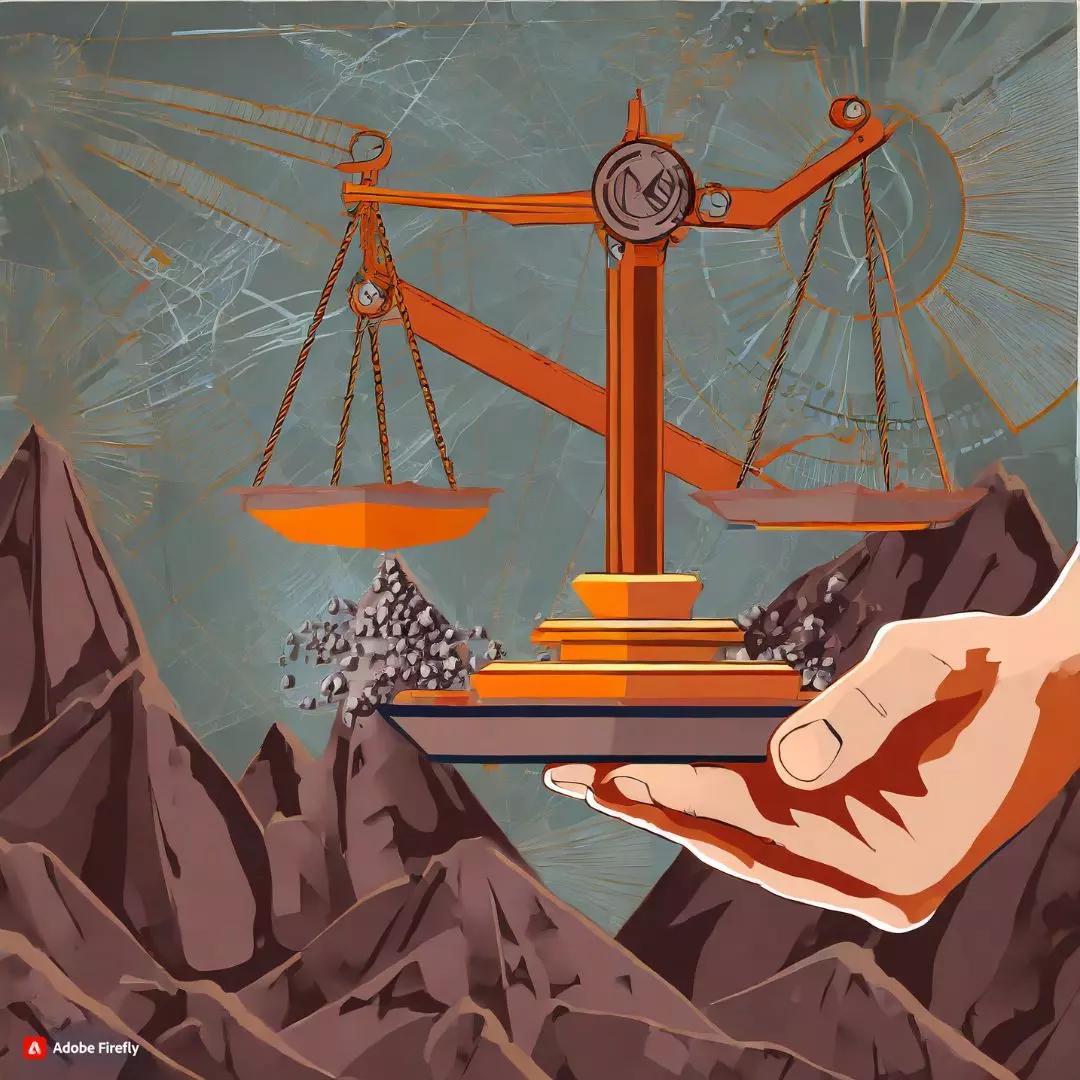
Image Credits: Adobe Firefly
SC Turns To Ministry Of Environment For Insights On Iron Ore Mining Cap In Odisha
Writer: Ankita Singh
A literature lover who likes delving deeper into a wide range of societal issues and expresses her opinions about the same. Keeps looking for best-read recommendations while enjoying her coffee and tea.
India, 5 Dec 2023 10:06 AM GMT
Editor : Al Arafat Sherfuddeen |
Passionate writer about current events, politics and happenings nationally and globally. An agent of communal harmony and an ardent Arsenal fan.
Creatives : Ankita Singh
A literature lover who likes delving deeper into a wide range of societal issues and expresses her opinions about the same. Keeps looking for best-read recommendations while enjoying her coffee and tea.
This decision comes in response to concerns regarding the sustainability of mining activities and the vital principle of intergenerational equity.
In a significant development, the Supreme Court has directed the Ministry of Environment, Forest and Climate Change to present its stance on the feasibility of imposing a cap on iron ore mining in Odisha. This decision comes in response to concerns regarding the sustainability of mining activities and the vital principle of intergenerational equity. The court emphasized the expertise of the Ministry in evaluating the environmental impact of such operations.
The Supreme Court, comprising Chief Justice of India D Y Chandrachud, Justice J B Pardiwla, and Justice Manoj Misra, sought the Ministry of Environment, Forest and Climate Change's expert opinion on the ongoing iron ore mining in Odisha. The move follows the court's review of the Union Ministry of Mines' affidavit, which lacked the Environmental Ministry's viewpoint.
Expressing the court's perspective, Chief Justice D Y Chandrachud remarked, "We want the view of the Ministry of Environment, Forest and Climate Change (MoEFCC). This ministry is the expert body and it can tell us about the impact of the iron ore mining on the environment and the concept of intergenerational equity."
The decision stems from concerns raised by Common Cause, an NGO, asserting that at the current pace, iron ore reserves in Odisha could be depleted within 25 years, necessitating the imposition of a cap on mining activities, as per a report in Economic Times.
Earlier, the Supreme Court had sought the Centre's response on the possibility of limiting mining in Odisha due to the state's finite iron ore reserves.
Simultaneously, the bench instructed the Odisha government to submit a fresh affidavit within four weeks detailing the recoveries of dues from mining firms found guilty of violating norms. The court also demanded information on the properties of these firms that were attached for debt recovery.
Senior advocate Rakesh Dwivedi, representing Odisha, informed the court that the state had collected a substantial amount in fines but Rs 2,622 crore remained outstanding. He assured the court of the government's commitment to expedite the recovery process.
The Supreme Court considered a plea from Common Cause, filed in 2014, urging that defaulting mining firms or their promoters should be barred from participating in future auctions involving the state's mineral resources. The court endorsed attaching the properties of defaulting firms to recover dues, reinforcing the need for swift action.
Lawyer Prashant Bhushan argued for a cap on iron ore mining in Odisha, similar to measures implemented in Karnataka and Goa, citing the state's limited mineral reserves.
The Odisha government contended that it had an estimated iron ore reserve of 9,220 million tonnes, with the potential for an increase pending ongoing research. The bench then directed the Centre to deliberate on the matter and submit a response within eight weeks on the feasibility of imposing a cap on iron ore mining in the state.
Also Read: Embrace The Earth: The Surprising Benefits Of Barefoot Walking Unveiled
 All section
All section














